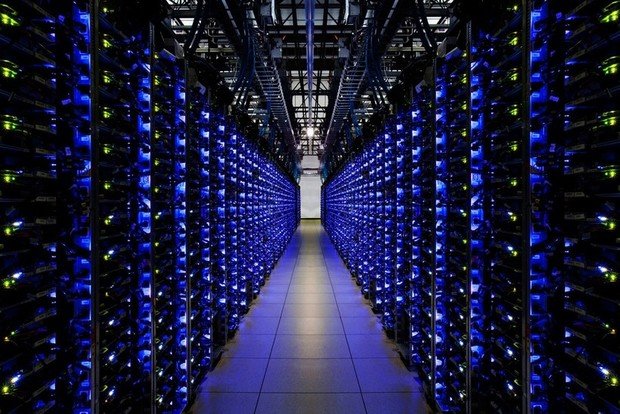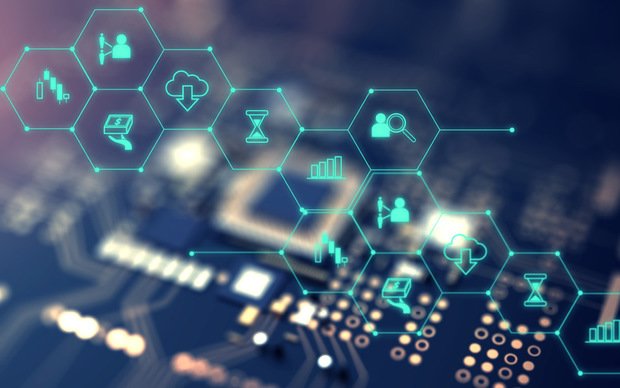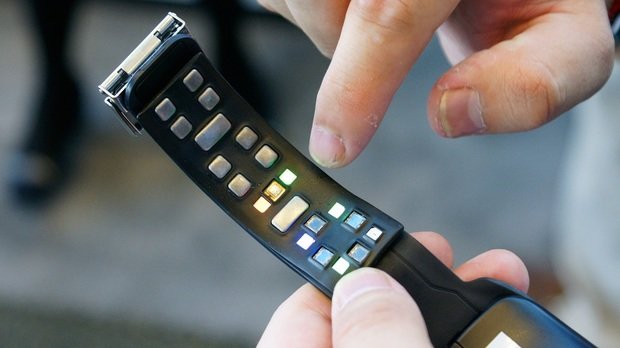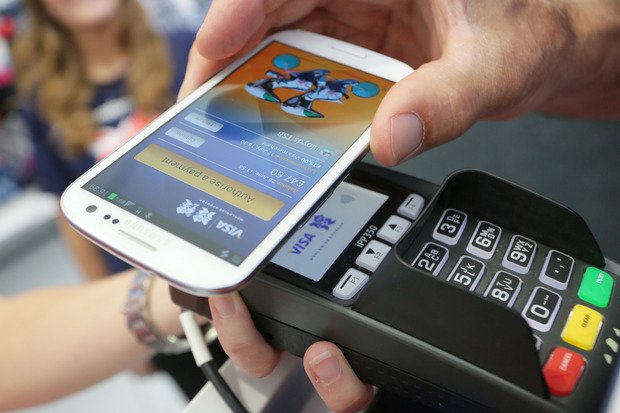''Business can’t afford carts with horses in the era of trains''
Artur Bashirov (Technokratos) tells about trends caused by mobile technologies
Five major trends will be soon taken for granted, though business doesn't understand well what to do with it. In a column written for Realnoe Vremya, Artur Bashirov, director general of Technokratos, is describing the real application of these trends in business and thinks whether Russian companies are able to catch up with them and where we went ahead of the West.
Humankind has never consumed and created so much information per unit of time as today. Every day we see advertisements of new mobile devices that become smaller, smarter, cheaper. Developers offer an endless number of smartwatches, smart bracelets, rings. Google and Samsung have recently announced their projects of smart lenses with a display and camera. We become witnesses of the change of society. If entrepreneurs intend to not only observe this with popcorn in their hands but are ready to actively participate in this process and create a technology business, they should think of the next five trends.
1. Aggregation and use of BIG DATA
All people know that mobile devices collected a lot of information about us, but few people know its scale. Banks, retailing, telecommunication companies already start to use it a lot. They analyse data they got through mobile applications installed on their clients' phones. Everything comes in handy: consumption models, incomes, behavioural patterns, psychological types, geolocation. With this information, companies create personal offers of their services, products, design a marketing strategy and optimise business processes.
It will be topical to remember the recent notorious case from the USA. An average American family: a father, a mother and a daughter. They go to the same big shop, buy the same goods. And they suddenly start to receive brochures with goods for pregnant women. The father reached the top management of the shop with fury, created a scandal. It turned out the shop launched a new system. The point is that the system can foresee changes in a person's life by analysing purchasing preferences. For instance, pregnancy can be forecasted if women start to be interested in certain goods. And the daughter knew she expected a baby only two weeks later. So the target knew about her delicate condition earlier than she did herself.

''A correct approach for implementation and use of big data and machine learning analysis technologies is able to considerably reduce costs in production, optimise processes, foresee indicators and events.'' Photo: zdnet.com
There are Russian examples too. For example, quite a successful start-up that analyses information about users of mobile operators on the basis of their history of communications, immediate surroundings, solvency and many other things. Results of such an analysis are given to banks to score clients. So banks get an additional tool in risk management.
Or another successful case of Yandex – Yandex Data Factory. The company implemented its product with big data and machine learning analysis technologies in a metallurgical factory. The system analyses data about the composition of alloys, parameters of the raw material, indicators of the process of alloying metal and gives the operator recommendations on the number of ferroalloys and other additional materials that need to be added while making steel in real time. The first tests of the service showed it was possible to reduce the consumption of material by 5%, which, in turn, led to an economy of 275 million rubles a year. By the way, a correct approach for implementation and use of big data and machine learning analysis technologies is able to considerably reduce costs in production, optimise processes, foresee indicators and events.
2. Personalisation
The second trend comes from the first one. A big amount of data enables to perfectly understand users and clients, their desires and intentions at a specific moment and create commercially profitable strategies, communication with them.
Companies learn to not only personalise a person but also analyse his psychological type and mood according to the data that applications collect. With this information, companies select a consultant or sales manager for a client who corresponds to their psychological type and current mood, thus increasing chances for a successful end of the deal. Highly-developed artificial intelligence will talk with us soon on behalf of a company. It will be more pleasant to contact than with a rude cashier.
Many support services (for instance, in the same banks) are already implementing chatbots today. They analyse hundreds of thousands of dialogues and addresses of clients to support services, create a complete illusion of a talk with a live person and are able to substitute him while processing standard requests or tasks of a client. It all enables banks to considerably reduce costs to maintain support services and increase the processing speed of requests. And the programme becomes smarter and more effective when such databases increase and time when the chatbot studies these data rises.

''Companies select a consultant or sales manager for a client who correspond to their psychological type and current mood, thus increasing chances for a successful end of the deal.'' Photo: plusworld.ru
3. Personal data protection
But any global trend created a counter-trend – many users already don't want to share personal data. So according to surveys held in 2017, 27% of the population isn't ready to share personal data in exchange for a discount or personalised service, while 19% are categorically against. The other 54% are likely to be neutral.
This is why protection of personal data and solutions in this sphere will become a sphere for new businesses and elements of client service. I think we're going to see soon how companies will mention they don't collect personal data and don't use them for commercial purposes while enumerating their competitive advantages.
4. Blockchain as solution of content's copyright problem
Even if it's said a lot about virtual currencies now, many people continue confusing the concepts ''cryptocurrency'' and ''blockchain''. Blockchain is a technology and an especial approach to keep any data, while cryptocurrency, in fact, is one of the products of application of this technology. If cryptocurrencies don't undermine the confidence in this technology completely, it will play a huge role in the becoming of a new technological society. A huge amount of costs in the economy are linked with the problem of trust. Blockchain will enable to change processes by excluding leech-like intermediaries.
Quite many solutions based on distributed ledger technology have appeared in the market in the last years: smart contacts, e-voting, trade, realty, digital identity, copyright and so on.

''Blockchain is a technology and an especial approach to keep any data.'' Photo: blockchainwiki.ru
The first blockchain deal in the world was made by British Barclays bank and an Israeli start-up in 2016. The deal was on supply of dairy and made between an Irish dairy producer and a Seychelles trading company. One year later, Alfa-bank and S7 announced a joint project on smart contracts and made their first deal.
Every day we see a lot of content on the Net created with the help of mobile devices, for instance, photos, publications, articles and even don't think whom actually this content belongs to.
The copyright problem is quite topical, the distributed ledger technology enables to perform such a task. Such start-ups as Ascribe, Binded, which allow people to fix their right and ownership to photos, paintings and other images, proves it. Or Proof of Existence that keeps documents of users in the distributed ledger and fixes their copyright at one point.
5. Biometrics
Identification of the voice, fingerprints, retina, peculiarities of the gait, identification of faces is a small part of biometric parameters that the devices a person has are able to collect today.
As a rule, mobile devices collect biometric data to identify and manage a device. But this is not the only way of applying these data. Mobile devices got a big amount of information about our physical state, can analyse this information, give results of such an analysis, give recommendations or independently make solutions on the necessity to call an ambulance. We will become witnesses of how globally medicine is going to change and what a role the devices we have will play in it.
Companies will try to experiment and personalise a person with his biometric data. And the law on telemedicine, which came into force, can create an entire market of solutions, services and products in this sphere!

''Identification of the voice, fingerprints, retina, peculiarities of the gait, identification of faces is a small part of biometric parameters that the devices a person takes are able to collect today.'' Photo: viwer.ru
Chaos can't be automated
Today not a product or service but a person-user himself and data about him is a good in the global market. And business needs to actively learn to define and choose this best-quality good. And for this, it's necessary to start closely communicating with its audience and collect information about it for further use and monetisation.
There are at least two main paths – to create your own information infrastructure consisting of services, mobile applications, devices or start cooperating with those who already know how to collect, analyse and aggregate such information.
We need to clearly understand that technologies aren't a miracle or panacea. Technologies are a recipe for success of a company. But only if a company is ready to implement them. As active technology market players, we often see how many companies try to implement a technology they're not ready for or invest much money in products they don't actually need. It's especially a characteristic of Russian companies that do their best to be up to date. In fact, they don't have even an electronic regulation.
A digital transformation requires quite a careful preparation for upcoming changes of both internal processes of the company and employees.
If your business processes work well, technologies are able to make them better. But if you try to optimise or automate chaos, you get greater chaos.

''In mobile banking, as strange as it might sound, Russia is one step ahead of Great Britain or the USA today.'' Photo: thatsmart.ru
The technological revolution is arising in Russia as well as around the world. But we need to tell about its specifics. Of course, there are spheres in which we fall behind the West and we're unlikely to catch up with it ever. Speaking of data collection, Russia can't be compared with the same States. In the USA, mobile applications already impose people what to consume. Russia has never collected these data. It's like playing Black Jack. Russia only hopes to win, while the USA has a clear strategy to win.
For instance, in mobile banking, as strange as it might sound, Russia is one step ahead of Great Britain or the USA today. These countries don't have such mobile applications like Tinkoff, Alfa-bank or even Sberbank. So all turns on a sphere and depth.
Undoubtedly, business can't afford carts with horses in the era of trains and clay tablets in the era of papyrus. It can't afford the absence of understanding of digital transformation processes in the era of digital technologies. If you want to reach the league of the best from the league of good, you need to study technologies, not to ignore them.